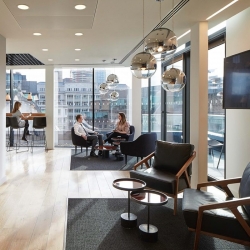To provide the best experiences, we use technologies like cookies to store and/or access device information. Consenting to these technologies will allow us to process data such as browsing behaviour or unique IDs on this site. Not consenting or withdrawing consent, may adversely affect certain features and functions.
The technical storage or access is strictly necessary for the legitimate purpose of enabling the use of a specific service explicitly requested by the subscriber or user, or for the sole purpose of carrying out the transmission of a communication over an electronic communications network.
The technical storage or access is necessary for the legitimate purpose of storing preferences that are not requested by the subscriber or user.
The technical storage or access that is used exclusively for statistical purposes.
The technical storage or access that is used exclusively for anonymous statistical purposes. Without a subpoena, voluntary compliance on the part of your Internet Service Provider, or additional records from a third party, information stored or retrieved for this purpose alone cannot usually be used to identify you.
The technical storage or access is required to create user profiles to send advertising, or to track the user on a website or across several websites for similar marketing purposes.
 Independent property, construction and infrastructure consultancy Pick Everard has unveiled its new-look head office following an extensive refurbishment led by its recently established in-house interior design team. (more…)
Independent property, construction and infrastructure consultancy Pick Everard has unveiled its new-look head office following an extensive refurbishment led by its recently established in-house interior design team. (more…)








 According to new research from
According to new research from 








 New research by
New research by 
 A new global study by
A new global study by 


 80 percent of us want to get back to the office, according to a new
80 percent of us want to get back to the office, according to a new 










November 5, 2020
Leadership in a new age of virtuality
by Andrew Mawson • Comment, Facilities management, Property, Technology, Workplace design